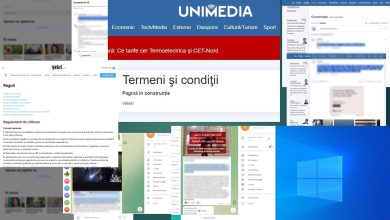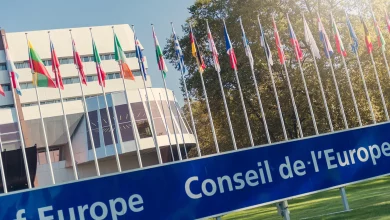Study: Vulnerable Groups Treat Traditional Media with a Significant Distrust

Only 4% of young people and 5% of persons with disabilities have high or very high trust in the media, according to the study conducted by the Independent Journalism Center. According to the data, family members, colleagues, relatives, neighbors, social networks, news websites, and local public authorities are the most reliable sources of information for the most vulnerable groups in the Republic of Moldova.
The study demonstrates that vulnerable group representatives treat traditional media with a significant distrust. TV is at the top of the distrust list: 43% of urban young people, 37-38% of women participating in the survey, and 41% of refugees find it unreliable. 42% of young people and a third of refugees do not trust magazines; 40% of young people and 32% of refugees do not trust newspapers; 47% of urban young people, 35% of rural residents, and 32% of refugees do not trust the radio.
When asked, “How much trust do you have in the media sources in the Republic of Moldova?”, 43% of urban women participating in the survey stated they did not trust the press either too much or too little, and about 42% of them had little or no trust in it. In addition, a little more than 10% of women from rural areas and only about 7% of those from urban areas had a high or very high level of trust in the media sources from the Republic of Moldova.
Young people said they had an even lower degree of trust: only 4% of them had a high or very high level of trust in the media. Rural young people have less trust in the media sources than the urban ones. 17% and 11% of them had no trust at all, and 32% and 27% had little trust, respectively.
The situation of persons with disabilities is comparable to that of urban young people: 5% have a high or very high level of trust, 50% had an average level, 28% had little trust, and 9% had no trust in the media sources from the Republic of Moldova.
The lowest level of trust in the media in the Republic of Moldova was mentioned by elderly people (a total of 42% of respondents had little or no trust), and the highest level of trust was mentioned by the Romani (17% of them had a high or very high level of trust in the press). The share of refugees who do not trust media sources prevails over those who trust. 45% of them mentioned an average level of trust, while 26% did not get any information from the Moldovan sources.
The survey participants also listed the sources of information they found most reliable. Family members are in the first place: 77% of refugees, rural young people, and the Romani get information from them. 74% of rural women also trust this source. It is followed by colleagues, relatives, and neighbors: more than half of all the respondents have a high or very high level of trust in them, especially the Romani (66%) and refugees (65%).
Social networks are a credible source of information for 60% of rural young people, 51% of urban young people, and 49% of rural women, while persons with disabilities and elderly people have less trust in them, only 21% and 22% respectively. News websites are more trusted by young people, including those from rural areas (57%), and also from urban areas (46%) and women, especially those from the countryside – 48%, as well as those from urban regions (39%). The local public authorities are especially trusted by the Romani (53%), rural women (50%), and refugees (46%).
The study was conducted by Date Inteligente Company upon request of the Independent Journalism Center (IJC).




